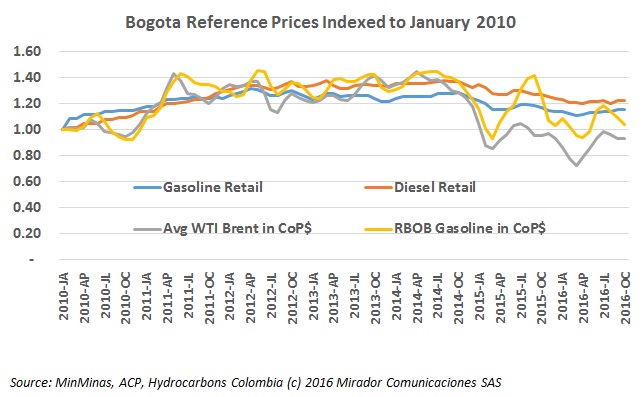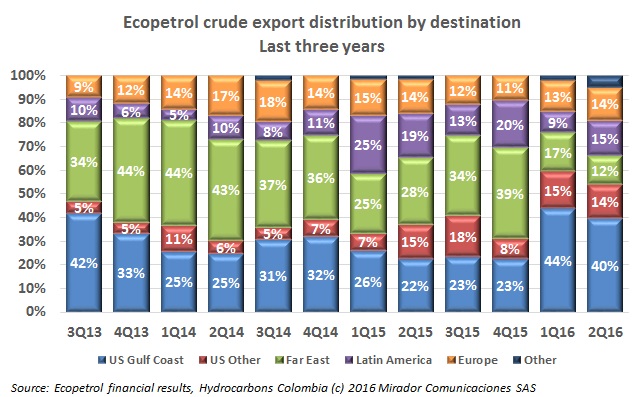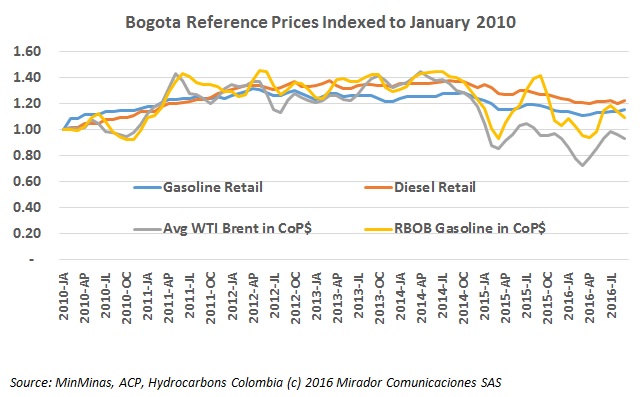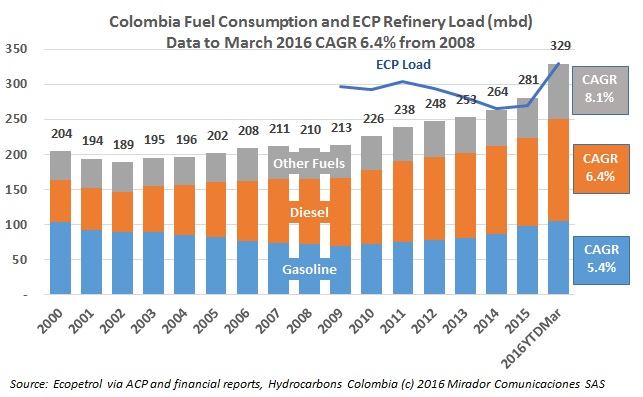
The Ministry of Mines and Energy (MinMinas) left fuel prices untouched for the month of October, with observers saying that stable international prices do not make it necessary to adjust Colombia’s prices.

The Cartagena Refinery (Reficar) expansion is not enough, warns the Colombian Petroleum Association (ACP), and if refining capacity is not expanded, by 2040 Colombia could be importing half of its fuel and gasoline.

During the first half of 2016, crude exports from Colombia to the United states increased by 82,000bd, to reach a total of 520,000bd. This amounts to a 18.72% increase compared to the same period last year.
Pending changes which will be announced by the Energy and Gas Regulation Commission (CREG) between October and November could mean lower biofuels rates, which has producers concerned.

The Ministry of Mines and Energy (MinMinas) published fuel prices over the weekend for September 2016, which include an rise in both gasoline and diesel, citing increases in crude and biofuels prices.
Colombia and Peru have received more interest from foreign investors as traditional markets like Brazil and Mexico have been hampered by economic problems. But despite this positive news, Latin America still ranks low as a priority for global investors, according to a recent survey.
The constant decline of existing gas fields like those in La Guajira, and a lack of new sources has spelled the end to an expansion of thermal generation plants designed to back up the general electrical grid.
In light of the reopening of the Venezuela-Colombia border, the Minister of Finance (MinHacienda) Mauricio Cárdenas said that more must be done in Venezuela to prevent the entry of contraband fuel, which brings negative social consequences.

Yet another reader question and yet another off-the-cuff answer led to some introspection and some inspection of the facts. Fuel consumption – as measured by Ecopetrol (NYSE:EC) – has grown by 6.4% annually since 2008.
The president of the association of fuel stations Fedispetrol Álvaro Younes said that contrary to what the government’s formula has yielded, fuel prices for both gasoline and diesel should be falling, and be at least CoP$300-400 (US$0.09-0.12) less per gallon.